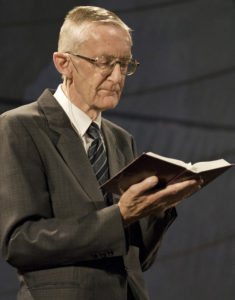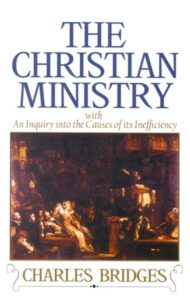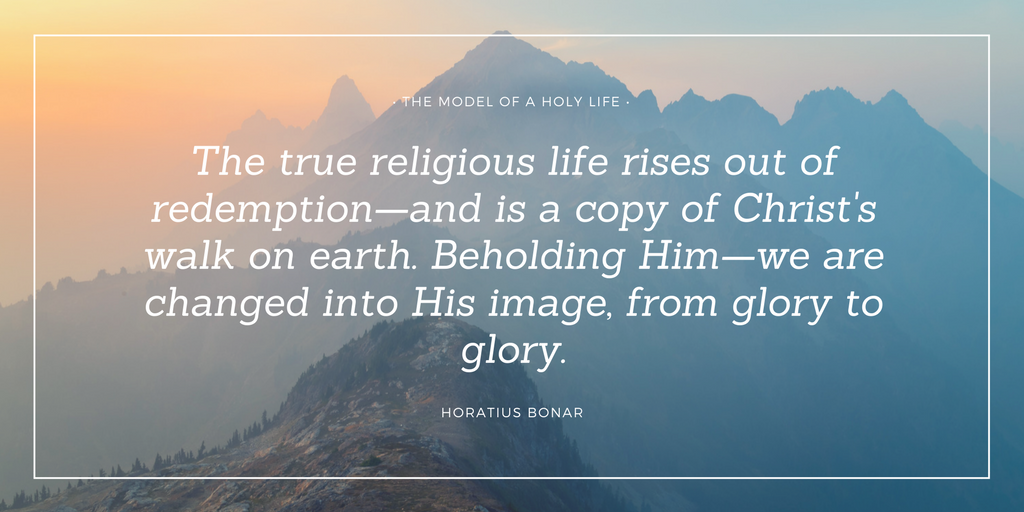
In 1872, Horatius Bonar published Light & Truth, a collection of his sermons and articles. One of my favorite entries is, “The Model of a Holy Life.”
Bonar begins by considering four Bible passages:
- “These are those who follow the Lamb wherever He goes.”—Revelation 14:4
- “Follow me!”—John 11:22
- “Leaving us an example, that we should follow His steps.”—2 Peter 2:21
- “I Paul myself beseech you, by the meekness and gentleness of Christ.”—2 Corinthians 10:1
He then writes, “These four passages point more or less to our responsibility for a holy life—and to Christ as the true model of that life. We are redeemed—that we may be holy. We are freely pardoned—that we may be holy. We look to Jesus—that we may be holy. We are filled with the Spirit—that we may be holy. The true religious life rises out of redemption—and is a copy of Christ’s walk on earth. Beholding Him—we are changed into His image, from glory to glory.”
Bonar proceeds to meditate on the mark of a growing Christian life. Each trait was found in Christ, and so should be found in us, for “a Christian, then, is a copy of Christ. His inner and outer man are to be copies of Christ. It is Christ’s footsteps he is to walk in. It is Christ’s image that he is to reflect. It is not Paul, nor Peter, nor Luther, nor Calvin, nor Rutherford that he is to copy—but Christ Himself. Other models may illustrate this, and so help in the imitation of Christ; but only as doing this are they useful; otherwise they are dangerous.”
What then is a Christian man?
Bonar answers that question in six ways. I read these yesterday afternoon and found much cause for conviction, encouragement, and prayer. May they do the same for you.
I. He is a man of FAITH. It was by giving credit to God’s word that he became a Christian man; for it is by faith that we become sons of God. And his whole life is to be a life of faith. As Christ lived by faith on the Father, so does he. Christ is his model as a believing man. The more that he understands of Christ’s life, the more will he see the faith that marks it, and will learn to copy it, to live, act, speak, and walk by faith.
II. He is a man of PRAYER. In this too he follows Christ. Christ’s life was a life of prayer. In the morning we find Him praying a great while before day. All night we find Him praying more. No one, we would say, needed prayer less—yet no one prayed more. And the disciple herein imitates the Master. He prays without ceasing. He is instant in supplication. His life is a life of prayer—constant communion with God.
III. He is a man of HOPE. Christ looked to the joy set before Him—and so endured the cross. He anticipated the glory, and so was a man of hope. There is the hope, the same glory, the same joy for us. The things hoped for are the things we live upon and rejoice in. Our prospects are bright—and we keep them ever in view. The kingdom, the crown, the city, the inheritance—these are before our eyes. They cheer, and sustain, and purify us! Were it not for the hope, what would become of us? What would this world be to us? Learn to hope as well as to believe.
IV. He is man of HOLINESS. He is the follower of a holy Master. He hears the voice—Be holy, for I am holy. He knows that he is redeemed to be holy—to do good works—to follow righteousness—to be one of a peculiar people. He is not content with merely being saved—he seeks to put off sin, lust, evil, vanity—and to put on righteousness, holiness, and every heavenly characteristic. He seeks to rise higher and higher—to grow more unlike this world—more like the world to come. He marks Christ’s footsteps, and walks in them. He studies the Master’s mind, and seeks to possess it; mortifying his members and crucifying the flesh. He aims at shining as He shone, and testifying as He testified.
V. He is a man of LOVE. He has known Christ’s love, and drunk it in, and found his joy in it. So he seeks to be like Him in love—to love the Father, to love the brethren, to love sinners—to show love at all times, in word and deed. His life is to be a life of love, his words the words of love, his daily doings the outflow of a heart of love. He is to be a living witness of the gospel of love. Love—not hatred, nor coldness, nor malice, nor revenge, nor selfishness, nor indifference—love such as was in Christ—that he endeavors to embody and exhibit.
VI. He is to be a man of ZEAL. ‘Zeal for Your house has eaten me up,’ said Christ. His life was one of zeal for God—zeal for His Father’s honor and His Father’s business. So is the disciple to be ‘zealous of good works.’ Zeal steady and fervent—not by fits and starts; not according to convenience, but in season and out of season; prudent, yet warm and loving; willing to suffer and to sacrifice; no sparing self or the flesh, but ever burning; zeal for Jehovah’s glory, for Christ’s name, for the Church’s edification, for the salvation of lost men—this is to give complexion and character to his life.
These things are to mark a Christian man. He is not to be content with less. He is to grow in all these things—not to be barren, not to stagnate, not to be lukewarm—but to increase in resemblance to his Lord—to be transformed daily into His likeness, that there may be no mistake about him—as to who or what he is.
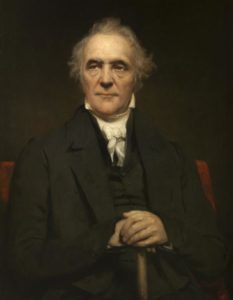 I’ve spent today wading through the voluminous works by or about Thomas Chalmers, trying to understand his influence on Robert Murray M’Cheyne. As David Yeaworth says, “In Chalmers, more than any other person, M’Cheyne found the mold for his ecclesiastical and religious thought, and a worthy pattern for his own ministerial life.”
I’ve spent today wading through the voluminous works by or about Thomas Chalmers, trying to understand his influence on Robert Murray M’Cheyne. As David Yeaworth says, “In Chalmers, more than any other person, M’Cheyne found the mold for his ecclesiastical and religious thought, and a worthy pattern for his own ministerial life.”


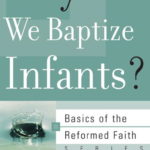

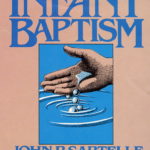
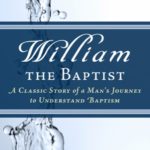

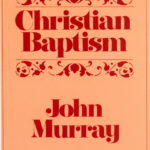
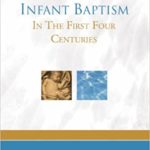
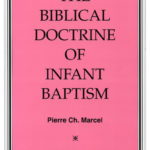
 In the spring of 2007, I read George Marsden’s
In the spring of 2007, I read George Marsden’s 

